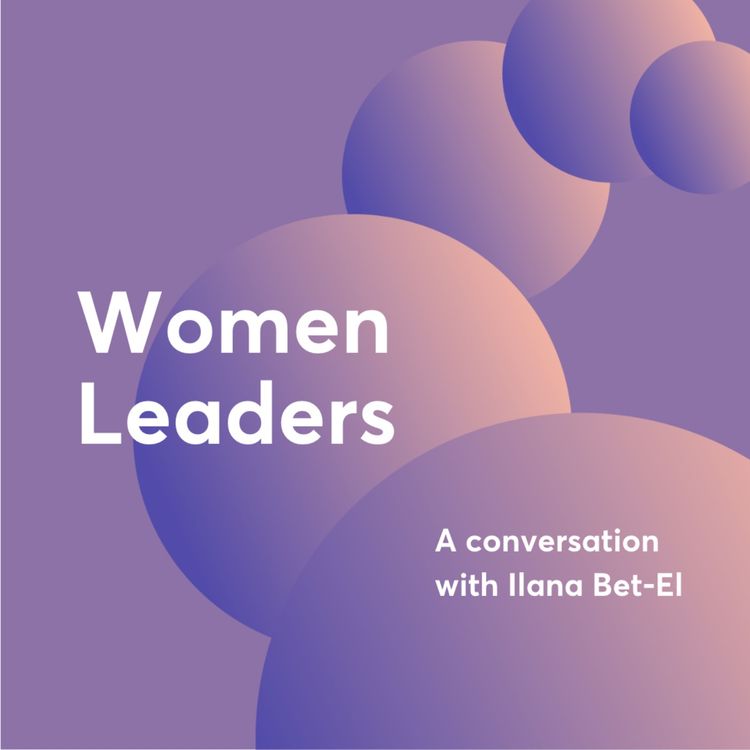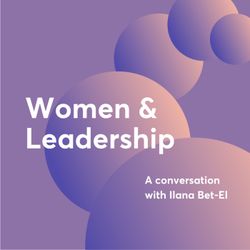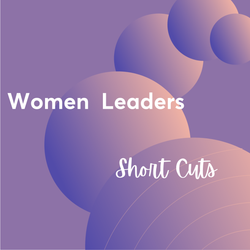Share

WIIS Brussels Voices
Women Leaders: Africa All Around
As the world grapples with the ructions of recent global disorder, focus has often turned to the global south and its reactions. Notably, the African continent has become of great interest, not least because of its varied positions on events in Ukraine and the Middle East, alongside the manifest attempts of China, Russia, the US and the EU to garner support and attention.
Africa is a continent of 54 separate states, with over 18% of the global population — so the mere attempt to speak of it as a whole is flawed. From regions to states, each faces unique challenges. Equally, while some states remain stable over time, others have been prone to descend into disorder. From August 2022 to 2023, there were a staggering seven military coups, largely in the Sahel region, creating a ripple effect of fear and concerns about contagion.
To better understand the continent, the coups and the potentials, Ilana Bet-El hosts a thought-provoking discussion with Comfort Ero, President and CEO at the International Crisis Group, and Nina Wilén, Director of the Africa Program at Egmont, Royal Institute for International Relations. Both women leaders bring extensive experience and fascinating insights to navigate the rhyme and reason of the continent; the eternal problems of governing and governance; the difference between military and constitutional coups and the reasons why citizens of African states have both embraced and rejected them; the role and potential of the African Union with a seat at the G20; and the over-hyped position of Russia in Africa.
This episode was recorded on November 14 2023 and features:
- Ilana Bet-El
- Comfort Ero LinkedIn & Twitter
- Nina Wilén LinkedIn & Twitter
Curious to learn more? Follow the link for more resources from our guests!
Credits
Music: Free from copyright
Production: Florence Ferrando
This episode is sponsored by the Heinrich-Böll-Stiftung European Union! Learn more about them:
More episodes
View all episodes

2. Consultation on Women & Security
53:10||Season 7, Ep. 2WIIS Brussels has been hosting special events under the title Consultation on Women & Security – and for the second time, we bring part of this powerful conversation to the podcast.Throughout this unique process, we explore personal definitions of 'security,' how the concept is evolving, and the vital role communities play in shaping safer environments. In December, WIIS Brussels members and friends of the Heinrich-Böll-Stiftung European Union came together online for an event that invited participants to share stories and reflect on security from a deeply personal perspective.In our pursuit of inclusivity and diversity, this edition of Consultations on Women & Security features three incredible women working on security: Matilda Tsitsi Fakazi, Ayisha Mohammed, and Rakiba Mohammed.This episode was recorded on December 19, 2024 and features:Matilda Tsitsi Fakazi, a dedicated community activist and leader with a deep commitment to social change and empowerment. Rooted in African traditions, she serves as a spiritual healer and herbalist, drawing on ancestral knowledge to promote holistic well-being and cultural preservation.Ayisha Mohammed, a passionate youth activist and mental health advocate with a strong focus on community development, empowerment, and education. She is the Deputy Director and Facilitator at Achievers Ghana, an NGO that supports the empowerment of girls by providing access to quality education, leadership development, and technology training. In addition, Ayisha serves as Operations Manager and trainer at Yepafrica, an organization committed to empowering young people to create positive change in their communities. Rakiba Mohammed from Nima, a popular slum in Accra, Ghana. She is a cybersecurity analyst who is passionate about bridging the tech gap between the rural and urban areas, deeply committed to empowering young women in underserved communities with technology education, making cybersecurity accessible, and fostering an inclusive and diverse future where everyone has the tools to thrive in the digital world.Sofiia Shevchuk, a member of the Steering Committee with WIIS Brussels. In this episode, Matilda, Ayisha and Rakiba share their personal journeys, their evolving understanding of security, and provide valuable insights for policymakers on creating a more secure and inclusive world for all.CreditsMusic: free from copyright Production: teevee.studioThis episode is sponsored by the Heinrich-Böll-Stiftung European Union! Learn more about them:WebsiteTwitterInstagramLinkedInSpotifyOpinions expressed in this podcast reflect the views of the speakers, and do not necessarily reflect the views of the Heinrich-Böll Stiftung European Union.
1. Consultation on Women & Security
58:18||Season 7, Ep. 1WIIS Brussels has been hosting special events under the title Consultation on Women & Security – focusing on migrant, refugee, and exile activists – and for the first time, we bring part of this powerful conversation to the podcast.Throughout this unique process, we explore personal definitions of 'security,' how the concept is evolving, and the vital role communities play in shaping safer environments. In September, WIIS Brussels members and friends of the Heinrich-Böll-Stiftung European Union came together for an event that invited participants to share stories and reflect on security from a deeply personal perspective.In our pursuit of inclusivity and diversity, this edition of Consultations on Women & Security features two incredible women defending the rights of refugees, migrants, and exiles: Silsila Mahboub and Seyran Khalili.This episode was recorded on September 12 2024 and features:Silsila Mahboub, an Afghan refugee living in Bulgaria, is an activist, human rights defender, entrepreneur, and public speaker who has dedicated her life to advocating for refugee women's rights in Europe. Seyran Khalili, a Kurdish-Norwegian human rights activist and a program manager at New Women Connectors, a social change movement that advocates for feminist ideals, and is led by migrant and refugee women who share common experiences and strengths.Sofiia Shevchuk, a member of the Steering Committee with WIIS Brussels. In this episode, Silsila and Seyran share their personal journeys, their evolving understanding of security, and provide valuable insights for policymakers on creating a more secure and inclusive world for all.CreditsMusic: free from copyright Production: teevee.studioThis episode is sponsored by the Heinrich-Böll-Stiftung European Union! Learn more about them:WebsiteTwitterInstagramLinkedInSpotifyOpinions expressed in this podcast reflect the views of the authors, and do not necessarily reflect the views of the Heinrich-Böll Stiftung European Union.
22. Women Leaders: Short Cuts #4
35:18||Season 6, Ep. 22Exactly one month after the Hamas attack on Israel, global disorder continues apace. To gain a broad perspective on the cascade of news and events, Ilana Bet El is joined by Oksana Antonenko, Visiting Fellow at the Schuman Centre for Advanced Studies in Florence and long-standing expert and advisor on geopolitics, crisis and risk.This is a lively discussion covering the latest moves of the US, the big picture on Russia’s posture and interests in the Israel / Hamas confrontation and the broader Middle East as well as its real perspective on Ukraine and the west. Iran and China are part of this perspective, but also have differing interests in the global disorder, while not publicly squabbling appears the main achievement of the EU.These issues and others bring a new and refreshing perspective on global events, connecting the dots between a multitude of actors with very differing agendas.This episode was recorded on 4 November October 2023.CreditsMusic: Free from copyrightProduction: Florence Ferrando
21. Women Leaders: Short Cuts #3
23:47||Season 6, Ep. 21The third week after the Hamas attack on Israel, the third week of ongoing war in Israel and Gaza not just on the battlefield, but also on social media, the third week of Europe not dealing with war in the Middle East and Ukraine — the third week of spiralling disorder.Olga Oliker, Program Director, Europe and Central Asia at International Crisis Group joins Ilana Bet-El to analyse developments, and bring some significant insights on the Russian position, the war on social media, the problems in the US and the irrelevance of Europe.What can we expect from U.S foreign policy? What role do diasporas around the world play in this conflict? Does President Vladimir Putin enjoy the chaos and helplessness of the EU? Why does the EU continue to struggle to express a voice? And what of world order?This episode was recorded on 28 October 2023.CreditsMusic: Free from copyrightProduction: Florence Ferrando
20. Women Leaders: Latin America on the Global Stage — Missing In Action?
47:45||Season 6, Ep. 20Historians of the future will spend much time deciding whether we entered the world of disorder in the Covid pandemic or because of the Russian invasion of Ukraine in 2022 or because of worsening US-China relations or because of the Hamas attack on Israel on 7 October — or because of many other reasons. However, when they come to analyse the events, they will find the voice of Latin America was relatively absent from the global stage, or indeed in the multilateral institutions such as the UN. This is an anomaly, as nearly 10% of the global population live in Latin America, and over centuries many exceptional people have emerged from the continent to contribute much to the global good.Two such exceptional women are María Ángela Holguín, former Minister of Foreign Affairs of Colombia, and Jessica Faieta, a native of Ecuador and former UN Assistant Secretary-General and UNDP Regional Director for Latin America and the Caribbean. They join Ilana Bet-El in a deep and wide ranging discussion about the continent — from the difficulties of women gaining high office in some states to the perceived absence of leadership in many Latina states, the declining state of democracy and the immense rise in violence and homicide related to drug wars and trafficking. They also reflect on the perceptions of global affairs in Latin America — from the war against Ukraine to the rise of China and its interests in Latin America to the decline of the UN. It is a fascinating and important perspective on the world.This episode was recorded on 18 October 2023, and features:Ilana Bet-El Jessica Faieta, LinkedIn & TwitterMaría Ángela Holguín Cuellar Want to learn more?WIIS Global report: Enhancing Security - Women’s Participation in the Security Forces in Latin America and the CaribbeanCreditsMusic: Free from copyrightProduction: Florence FerrandoThis episode is sponsored by the Heinrich-Böll-Stiftung European Union! Learn more about them:WebsiteTwitterInstagramLinkedInSpotify
19. Women Leaders: Short Cuts #2
26:09||Season 6, Ep. 19As the world grapples with ever-shifting news, join us for an exploration of key events from the second week of world disorder following horrendous events in Israel and Gaza — and escalating tensions throughout the Middle East.Nathalie Tocci, Director of the Istituto Affari Internazionali, shares her insights on the rapidly shifting sands in the region and far beyond in a discussion with Ilana Bet-El.Will long-standing, contained regional tensions extend the conflict further? How is the conflict in Ukraine being affected by events in the Middle East? Is the EU capable of speaking in a coherent voice ? And above all, is there any vision beyond the immediate limitation of deaths and casualties?CreditsMusic: Free from copyrightProduction: Florence Ferrando
18. Women Leaders: Short Cuts
22:48||Season 6, Ep. 18As news unfolded dramatically and horrifically on Saturday, October 7, 2023 in Israel and throughout the week in both Israel and Gaza, it became clear we were witnessing something potentially bigger: yet another escalation in global instability and dysfunction.This called for a short sharp burst of explanation and assessment with a Woman Leader.Anna Sauerbrey, Foreign Editor at Germany's prestigious Die Zeit and a columnist for The New York Times, engaged in a one-on-one conversation with Ilana Bet-El. Their mission: to delve deep into the repercussions that followed the Hamas attack in Israel and the ensuing crisis in the Gaza Strip.Will the war spread? Has the EU the ability to deal with two wars? Will the US rise to the challenge? What are the far-reaching consequences of this recent turmoil? Get the answers in this short, raw discussion.This episode was recorded on Saturday, October 14, 2023.CreditsMusic: Free from copyrightProduction: Florence Ferrando
17. Women Leaders: Afghanistan - The Collapse of a House of Cards
42:03||Season 6, Ep. 17At 23:59 on August 30 2021 the last US soldier left Kabul, and Afghanistan — and 20 years of international intervention came to an abrupt, final and appalling end. Abrupt, because despite the departure date being known at least since the start of the year, the speed with which the Taliban captured territory vacated by international forces, and the speed with which the internationally trained Afghan army collapsed, meant that the withdrawal became a rapid evacuation, with scenes of chaos and shooting at the airport. On August 15 the Taliban also entered Kabul, the capital: A black day for Afghanistan, as many Afghans put it.Final, because other than basic humanitarian agencies, all other international bodies had either left or were swiftly told to leave by the jubilant Taliban, the new masters of the state. At the same time, most international aid was halted.Appalling, because the lives of the people in Afghanistan have become intolerable. Over 75% — some estimates say 90% — of the population now live in abject poverty, made worse by droughts, other effects of climate change, and a regime that makes little effort to provide even basic services. Within that, the situation of women is, if possible, even worse, as noted by UN Women, "Through over 50 edicts, orders and restrictions, the Taliban have left no aspect of women’s lives untouched, no freedom spared.” Women and girls are now effectively non-people.The fall of Afghanistan has largely become obscured by the appalling war of aggression in Ukraine, but it was and remains both a bleeding international sore, and a blight upon the Afghan people, both in-country and the diaspora. Join Ilana Bet-El in a fascinating, in-depth and very human exploration of these realities with two impressive women of Afghanistan: Dr Habiba Sarābi, a Minister of Women’s affairs in Afghanistan and a member of the former government negotiating team with the Taliban, who was sitting with them in Doha as Afghanistan fell, and Dr Tabasum Akseer, Senior Advisor at the Asia Foundation who was in Kabul as events were unfolding. This episode was recorded on August 18 2023, and features:Ilana Bet-El Habiba Sarabi Twitter & WikipediaTabasum Akseer LinkedIn & Asia FoundationCreditsMusic: Free from copyrightProduction: Florence FerrandoThis episode is sponsored by the Heinrich-Böll-Stiftung European Union! Learn more about them:WebsiteTwitterInstagramLinkedInSpotify